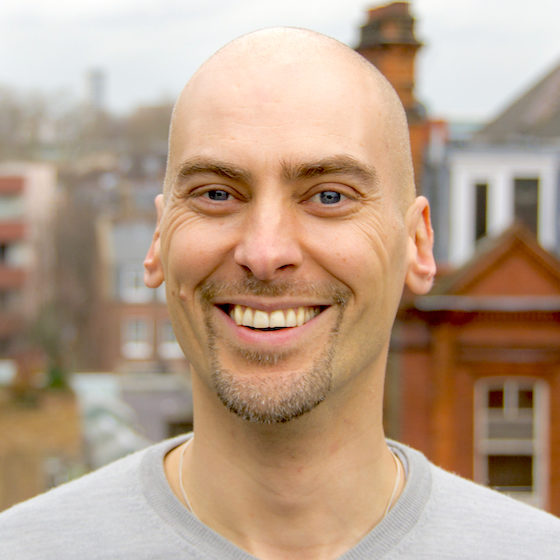One could be forgiven for thinking that global markets are finally mobilising to solve humanity’s greatest challenges, from climate to poverty. ESG assets under management have been growing at 30% for five years, and now total $37 trillion. Meanwhile, a fifth of the world’s 2,000 largest public companies have set net zero carbon targets, and others are racing to do so.
Yet do these commitments amount to much? BlackRock’s former head of sustainable investing has described ESG as a “giant societal placebo” incapable of driving real change. Many corporate net zero pledges are being called out for lacking any credible action plan, for relying on ineffectual offsets, and for pushing the goal out by decades.
Look at what the global economy is doing, rather than what it’s saying, and the picture is bleak. Humanity is in a dire state of ecological overshoot. This year, CO2 emissions will jump back to 2019 levels – the second biggest annual rise in history – as governments pour stimulus cash into fossil fuels following Covid-19. Meanwhile we’re felling forests at a rate of 40 trees per second: enough in a year to cover Belgium. 10 million tons of plastic end up in our oceans every year, which is the equivalent of a rubbish truck load every minute. The socioeconomic story is no better. As Western nations began mobilising to give Covid-19 booster shots this summer, it was revealed that only 0.003% of vaccine doses had reached low-income countries, costing their economies billions in lost output.
We are destroying our social fabric and Earth’s ability to support us at unprecedented rates. Yet incumbent interests continue to peddle a “same but better” vision, claiming that with enough tweaking the current system can and must live on. Unproven but headline-worthy solutions – which we’re told will be viable in just a few years – promise to clean up our oceans, suck carbon from the air, and replace fossil fuels. Too often such stories serve only to provide cover and buy time for those in power, who have little incentive to disrupt the system which led to their success.
Which brings us to COP26: the twenty-sixth annual opportunity for global leaders to get their collective shit together on the climate crisis. Will this be the year that counts? It’s not looking promising. Some of the most important voices may not be at the table: Covid-19 travel restrictions are expected to prevent huge numbers of delegates from the Global South from attending. Well over a hundred nations have submitted new or updated plans to curb their emissions, but these are “nowhere close to the level of ambition needed to limit climate change to 1.5 degrees and meet the goals of the Paris Agreement,” according to the UN. Perhaps leaders have been holding back to unveil bold new plans at the event itself? Unlikely, given that behind the scenes Saudi Arabia, Japan, Australia and others have been lobbying the UN to play down the need to rapidly move away from fossil fuels. I truly hope I’m proved wrong, but the COP process has become the very definition of incrementalism, and there’s little reason to expect that this year will be any different.
At this point, you may be wondering how the word “hope” had the audacity to appear in the title of this piece. Well the truth is that I really am hopeful – not because of the COP process, but in spite of it. I’m hopeful because there is a viable alternative to incremental change. With the right investments and interventions, we can still avoid unprecedented and irreversible levels of human suffering. To do so we must rapidly and radically transform every aspect of how we live and meet our needs. A range of emergent disruptive technologies, deployed in combination – from gene sequencing to artificial intelligence – have the potential to fundamentally transform the five foundational sectors of the global economy: information, energy, food, transportation, and materials. Within a decade, we could be well on the way to meeting the needs of everyone on Earth and living in harmony with nature – while reducing costs by 10x or more, using 90% fewer natural resources, and with 10x-100x less waste.
This may sound like a pipe dream, but it is possible. It’s also essential, because at this point no amount of incremental change is sufficient. Consider our transition to clean energy: to power the manufacturing of wind turbines, solar panels and so on, our only option is to use fossil fuels. Yet to build enough renewable infrastructure to meet today’s demand, we would burn through all of our remaining carbon budget – leaving no room to power the rest of the economy in the meantime. However, if we fundamentally transform how we use energy across all sectors of the economy, we can reduce today’s demand by 90% or more. That means we will only need to replace a fraction of our non-renewable energy infrastructure.
A new breed of purposeful SMEs are working on disruptive solutions with the potential deliver what’s needed, across all key sectors. But their efforts often fail to reach scale due to a lack of resource, challenges from incumbent interests, and a limited understanding of how to influence the systems around them. A few large companies, too, are starting to embrace the need to reinvent themselves. Yet their success isn’t guaranteed either: self-disruption doesn’t come easily to organisations which have reached their positions of strength via a relentless focus on efficiency rather than experimentation.
What we need now is to help every would-be game changer to overcome these issues. I’m thrilled to say that the Future-Fit team is now working on making this happen. We’ve begun development of several new tools to help disruptive entrepreneurs understand, navigate and influence the systemic market contexts within which they operate – and to increase their chances of translating their radical ideas into robust implementation plans on a trajectory to exponential scale.
Any transformative action will no doubt meet great resistance from those whose power and wealth accrue from the current regime. But their influence will wane as each new game-changing solution starts to prove itself. Once the disruptors become a visible and financial threat to established industries, market forces will quickly switch to favour them.
I’m hoping I’ll be proved wrong about COP26. I’m hoping the next two weeks will herald a step-change in the ambitions and actions of nation states. But what makes me hopeful is that there really is another path – and I hope to meet you on it.





